how to use color palettes drawing
Nowadays, digital art programmes give us an overwhelming amount of colours to choose from, which makes it tempting to go overboard.
Painting with a limited colour palette challenges you to think outside the box and find new, creative uses for colours. This article aims to help you with that, including tips on how to create a limited colour palette, how to approach painting with it, and an art feature.
About creating a colour palette:
In order to paint with a limited colour palette, you will first have to create said palette.
Here a few pointers for creating your own palette:
- You can choose as little as two colours, but since we're talking about limited palettes, you should choose no more than five to start out with.
- There's a few simple tricks to ensure you get an unified colour palette, but that doesn't mean you absolutely have to use them. Your colours can be as crazy as you want. Knock yourself out.
- Having a mood in mind for your work will help you with picking colours.
- Don't pick colours that are only different in value (light - dark), but pick colours with different saturation, too.
- If you don't want to draw from imagination, but foucs solely on experimenting with colour, you can always use a stock photo for reference.*
*Don't forget to credit though!
For further reading:
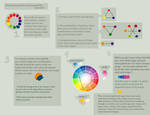
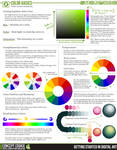
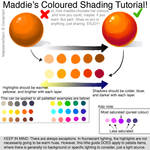
![]()
![]()
![]()
There's also quite a few artists who make palettes free* to use for everyone. The fun with these is, you can just choose one at random (or have someone else choose one for you) and start experimenting right away!



*Credit those artists if you use their palettes though!
In case you're too lazy to create your palette "by hand" but don't want to use someone else's, there are also colour palette generators out there. A few of them are listed here:
![]()
Resources For Artists: Colour Scheme Tools Colour Scheme Tools
So I have been thinking of doing a few articles apart from feature articles to link some useful resources for artists and this is the first one of these. While this is a mini one, it's helped me a lot on several occassions.
Sometimes it gets confusing to decide which colours to choose. "'Should I go with a turquoise and a gold for the face? What about the room? I was going for a chic cool modern palette which is minimalistic!" Surely, a lot of us have gone through those decisive moments. Below are some colour scheme tools that would help you with your colour scheme choices. Click the titles or the links in asterisk to go to the following sites.
COLOURlovers

A big resource community for colour palettes*, user named
There are also a few palette challenge memes going around DeviantArt:
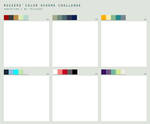 <da:thumb id="157874684"/>
<da:thumb id="157874684"/> 
About painting with a limited colour palette:
Basically, there are two ways to go about painting with a limited palette.
(1)
The first one is to only use the colours you picked as they are, i.e. you don't blend them to create colours not in your original palette. That means you don't blend your colours when shading, either.
Example:
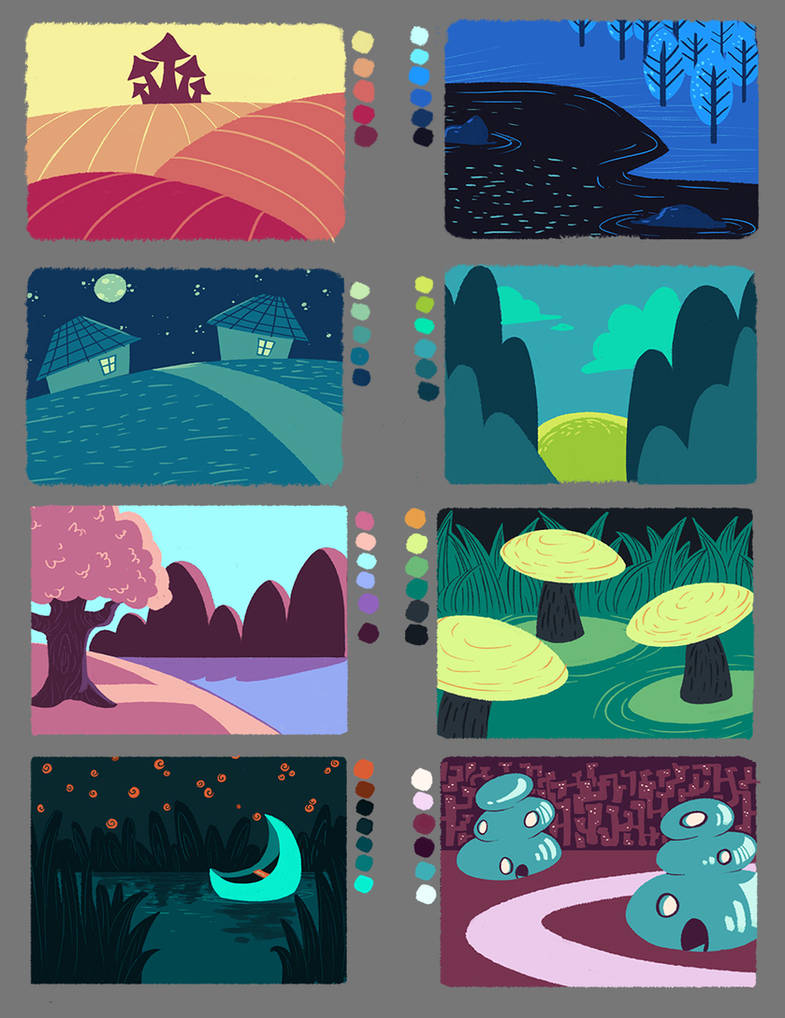
This way might be the more challenging one, since you are really limited to only those first colours. No adding new ones, no blending, colour picking (at least not for blending purposes), or playing with opacity. ![]()
(2)
The second one is, surprise, just the opposite. You start with just the colours from your chosen palette, but as your work comes along you do blend them, use different opacity, and so on.
Example:
The colour picker is your best friend here, as you cannot pick new colours but have to make do with what you already have. Since you're not adding any new colours you also run less of a risk of ending up with a non-unified colour scheme.
Say you started out with these colours:

|
|
blending+colour picking
|
|
V
What you might end up having in your painting:

The way I found to be the easiest with regard to handling a limited colour palette while painting is to start with a relatively dark colour (not your darkest though), and fill in the background with that. Next you take a lighter colour to define basic shapes and go back to your dark colour to add rough shadows. Last come your darkest and lightest colour respectively, for deepening shadows and defining highlights.
Example:
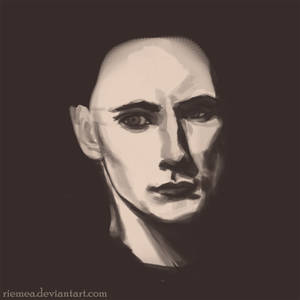
(2 colours)
You can also work the other way around and use a darker colour on top of a lighter one, defining shadows first, and leaving space for highlights to be added later.
Example:
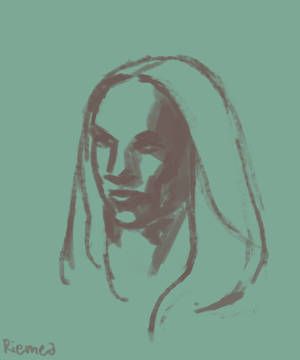
(2 colours)
Have fun experimenting! ![]()
Art Feature

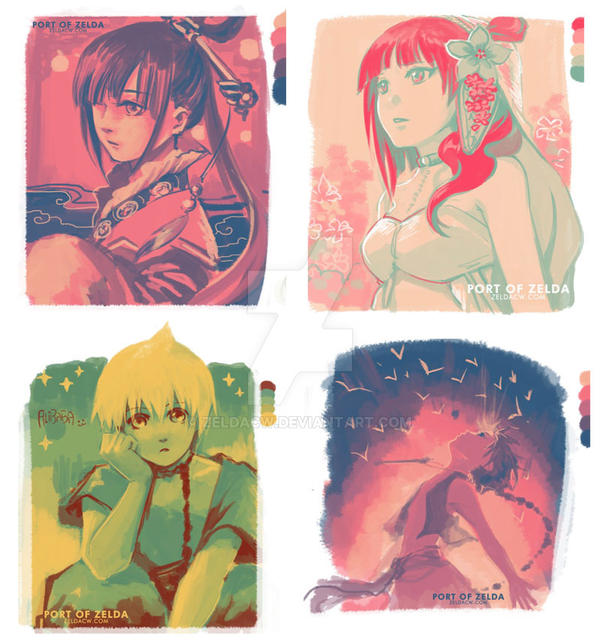

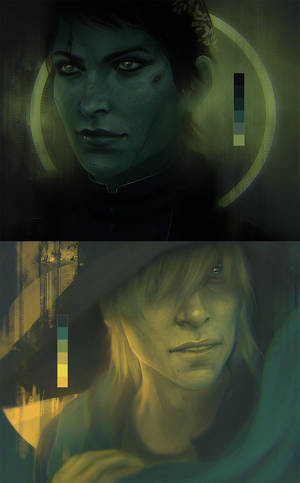


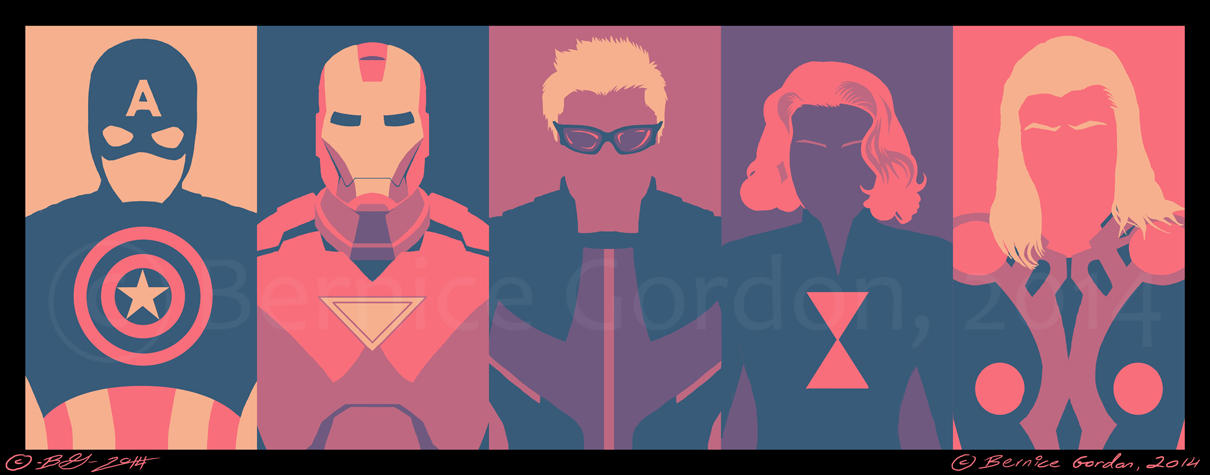


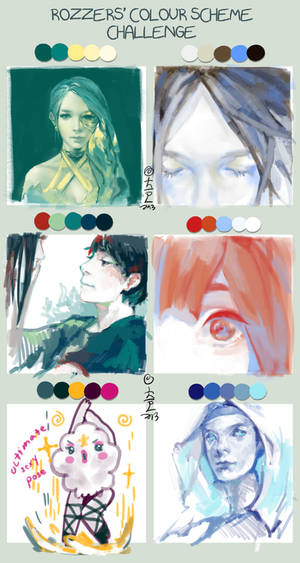
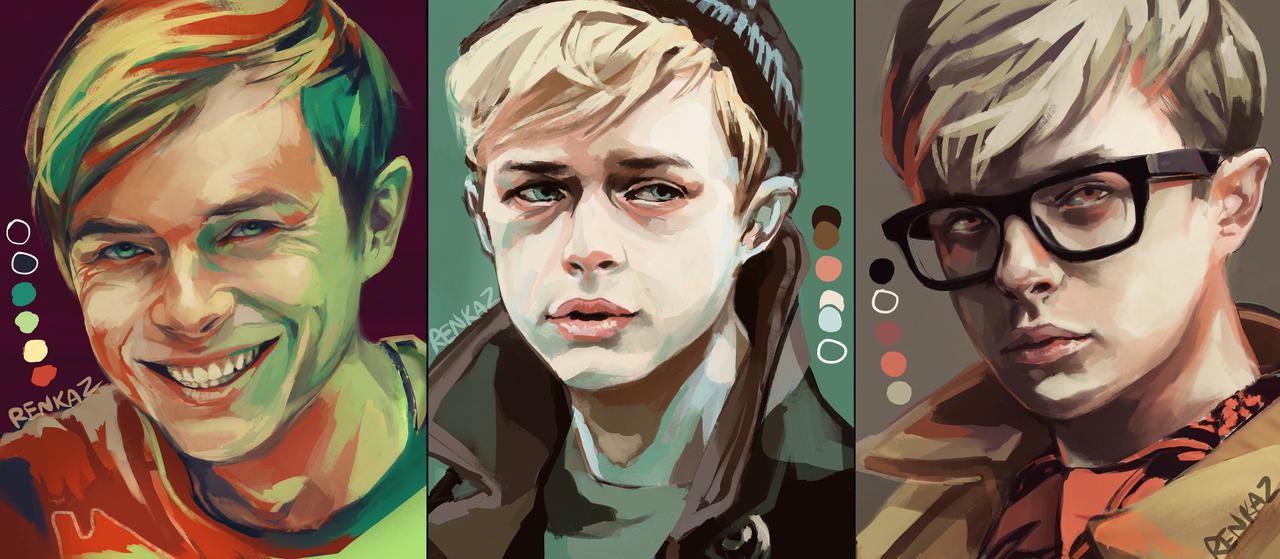
how to use color palettes drawing
Source: https://www.deviantart.com/riemea/journal/PE-Painting-With-A-Limited-Colour-Palette-512919278
Posted by: johnsonwhowerromed56.blogspot.com

0 Response to "how to use color palettes drawing"
Post a Comment